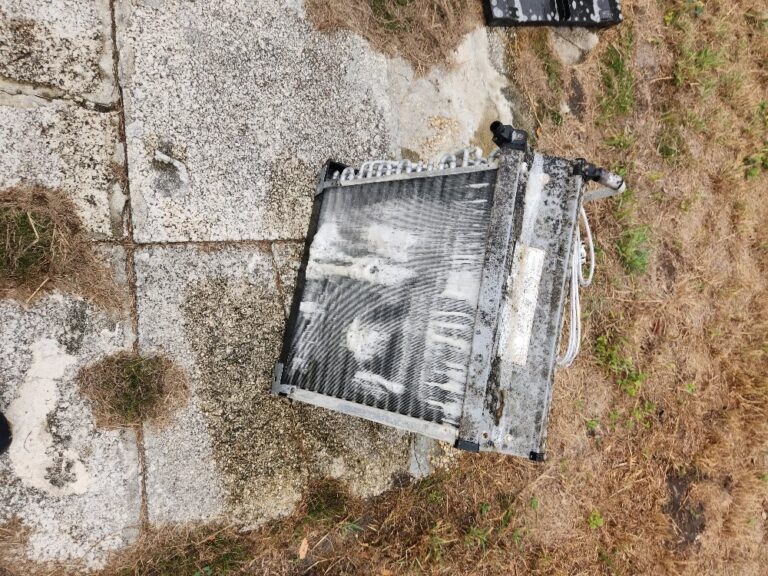In the vibrant landscape of today’s housing market, mobile homes have gained a reputation as a viable and cost-effective living option for many. However, the allure of affordable homeownership can quickly diminish when it comes to essential home systems like heating, ventilation, and air conditioning (HVAC). While many homeowners may expect to budget purely for the visible costs of upgrading or replacing their HVAC systems, several hidden costs can significantly impact overall financial investment. This article will explore these hidden costs, specifically for mobile home HVAC replacements, especially with the noted Momentum AC Pro systems.
Understanding Mobile Home HVAC Systems
Mobile homes, often constructed in factories and transported to their sites, have unique HVAC needs compared to traditional homes. Due to their compact design and energy efficiency, mobile home HVAC systems are vital. The system must be designed to fit in limited space while providing adequate heating and cooling.
The transition to a new HVAC unit, especially one like Momentum AC Pro, can be considered an investment in comfort, efficiency, and future cost savings. However, as with any investment, knowing what lies beneath the surface is crucial.
Initial Costs: The Obvious Expense
Typically, the most apparent expense when replacing an HVAC system is its purchase price. Here, we consider Momentum AC Pro as an example.
- Cost of the Unit: The price can vary widely based on capacity, brand, and performance rating. Typically, mobile home HVAC units cost between $3,000 and $5,000, not including additional installation costs.
- Installation Fees: Depending on the severity of the old system’s disassembly and the intricacies of the new unit’s setup, installation fees usually run between $1,000 and $3,000. Labour costs can fluctuate based on the contractor’s experience and regional labour rates.
However, as financial planners often suggest, one should factor in more than just the initial outlay.
Hidden Costs of HVAC Replacement
Permits and Regulations
Many local governments require permits for HVAC installations or replacements, especially in mobile homes. Depending on your location and specific regulations, these permits cost anywhere from $50 to several hundred.
Failing to obtain the necessary permits could result in fines or issues during future inspections, which could impact your long-term peace of mind and financial situation.
Site Preparation and Modifications
The space where the new unit will be installed might need modifications:
- Ductwork Adjustments: Adjustments must be made if the existing ductwork is incompatible with the new system or if air leaks are present. These modifications could cost an extra $500 to $1,500.
- Foundations and Support: Mobile homes might need additional support or a strong foundation to efficiently accommodate an upgraded HVAC system. Building new supports can cost another $200 to $1,000.
Additional Components
Replacing an HVAC system in a mobile home might also necessitate the replacement of additional components, which can contribute significantly to overall costs:
- Thermostats: A modern, smart thermostat costs between $100 and $300, providing energy-efficient control but increasing overall expenditures.
- Air Filters: Regular maintenance is essential. New high-efficiency filters can cost around $30 to $100 each, depending on the frequency of replacement required.
- Duct Insulation: Proper insulation is essential for HVAC efficiency, especially in mobile homes. Depending on the current state, this can cost an extra $300 to $600.
Energy Efficiency Ratings
While higher efficiency ratings (SEER ratings) for your HVAC often lead to lower energy bills, they come with a higher purchase price:
- Long-Term Savings: The initial cost increase must be weighed against long-term savings. A unit with a higher SEER rating may save you approximately $200 annually on energy bills. However, the price tag could increase by $1,000 to $2,000.
Potential Repairs and Maintenance
It’s essential to consider future maintenance or repairs when replacing your HVAC unit. Once a new system is installed:
- Routine Maintenance: Regular professional inspections are advised, costing $100 to $300 annually. Otherwise, neglect could lead to more significant system failures and a reliance on costly emergency repairs.
- Unexpected Repairs: After installation, hidden issues such as refrigerant leaks, duct leaks, or electrical issues may arise, which may cost several hundred to thousands of dollars to resolve.
Insurance and Warranty
Insurance-related to HVAC systems and the details regarding warranties associated with the replacement system can introduce hidden costs:
- Home Insurance: Policies might require adjustments following an HVAC replacement, possibly increasing premium rates by $100 to $300 annually.
- Extended Warranty Options: Some homeowners might opt for extended warranties for their new HVAC systems, often costing approximately $300 to $600 for additional coverage.
Cost-Benefit Analysis
All these factors lead to an essential examination of cost versus benefit in upgrading your mobile hhome’sHVAC system:
- Total Estimated Costs: It is crucial to calculate total costs comprehensively, including initial expenditures, hidden costs, and potential future repairs.
- Energy Savings: Higher efficiency systems may present cost savings over time, often justifying upfront expenses.
- Enhanced Comfort: Resulting comfort levels cannot be quantifiably measured in mere dollars but must form part of your overall assessment.
- Home Value Increase: A newer, efficient HVAC system can attract potential buyers and justify a higher sales price should you sell your mobile home.
Navigating Hidden Costs in Mobile Home HVAC Replacement
Being aware of and preparing for the hidden costs involved in HVAC replacement can save you anxiety and unexpected financial burdens:
- Budgeting for Repairs: Always include a contingency fund, ideally around 10-20%, within your budget for unforeseen expenses.
- Choosing Quality Over Price: By investing in reputable brands such as Momentum AC Pro, you may pay slightly more initially but could save substantially on repairs and energy efficiency in the long run.
- Consult with Experts: Engaging with professional HVAC contractors offering comprehensive services, including installation, maintenance, and inspection, can yield better long-term results.
Conclusion: Making an Informed Decision
In conclusion, while the excitement of replacing your mobile home’s HVAC system can be palpable, it is essential to remain aware of the potential hidden costs accompanying such a decision. Knowledge of these factors – from permits and site preparation to energy efficiency and additional components – can empower you to approach the replacement process confidently.
Investing not only in the system itself but also in understanding the broader implications of your choices allows you to optimize your investment for comfort, efficiency, and long-term benefit. As you navigate this journey, remember that awareness is your ally in making informed decisions beyond the purchase price. An informed homeowner is a happy homeowner, so educate yourself, examine your options, and choose wisely as you enhance your living space with a new HVAC system.
FAQs
- What is the average cost of replacing an HVAC system in a mobile home?
- The average cost typically ranges from $4,000 to $8,000, encompassing the unit price and installation fees.
- Are permits always necessary for HVAC replacement?
- Usually, most municipalities require permits for HVAC installations to ensure that systems meet safety standards.
- How often should I replace my mobile home’s HVAC system?
- Generally, HVAC systems last between 10 to 15 years. Consider replacement once efficiency declines significantly.
- Can I do the installation myself to save cost?
- While technically possible, HVAC installation requires expertise to ensure efficiency, safety, and compliance with local building codes.
- How can I maintain my new HVAC system effectively?
- Regular maintenance includes changing filters quarterly, scheduling professional inspections annually, and ensuring the surrounding area is debris-free.




